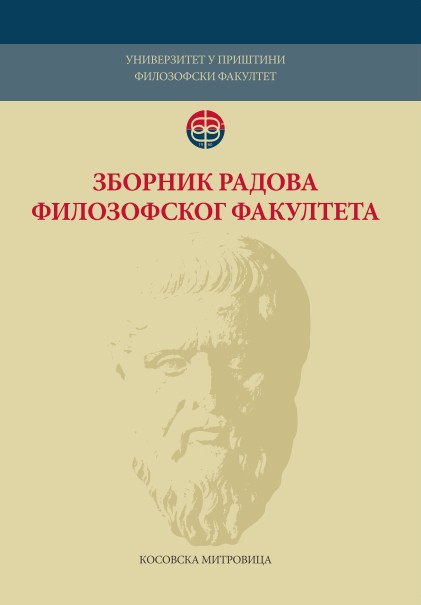Период државно-правног провизоријума прве заједничке државе Јужних Словена (1918-1921)
Period of political and legal provisorium of the first common state of the Southern Slavs (1918-1921)
Author(s): Sava AksićSubject(s): History of Law, Constitutional Law, Political history
Published by: Филозофски факултет, Универзитет у Приштини
Keywords: common state; Serbs; Croats; Slovenians; constitution
Summary/Abstract: First common state of southern Slavs, that is of Serbs, Croats and Slovenians, was not created by one act and not all at once, but over the period of three years (since 1918 until 1921) because there was disagreement between constitutive nations about which state should be made. Given that in this period there was not constitution, it was called provisional state. But, even later, when the first constitution was adopted – Vidovdan Constitution of the year 1921 – it was not legitimate, because it was not adopted with the agreement of all three nations. However, in factual sense, this state functioned like any other, and with strong jurisdictions of central authorities. The period of political and legal provisorium was filled with political discussions and differences of opinion on the structure of the future common state. These differences continued to grow. Serbian parties advocated for centralistic state, while Croatians, Slovenians, and Muslims were proponents of a federal or a confederate state. In fact, to the Croatian parties, the goal was not creation of the common state, but they implicitly agreed to it so that they would save territories with non–Croatian population. Aside from that, the Croatian provinces on the Austro – Hungarian side were lost in the war, leaving Croatia with only a portion of its territory. While Serbian people saw only interim solution of the Slavic unity in the common state, Slovenian and especially Croatian people recognized the opportunity for liberation from Austro-Hungary and international recognition, especially in the territories where the Croats were not the majority. Croatian parties requested decentralization, while at the same time they were not ready to admit even the minimum of rights to other nations, primarily to the Serbian people, who lived in the provinces that Croatian political leadership was pretending to.
Journal: Зборник радова Филозофског факултета у Приштини
- Issue Year: 47/2017
- Issue No: 2
- Page Range: 225-239
- Page Count: 15
- Language: Serbian

